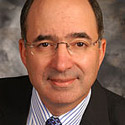08:51 AM
The Sins of the Few
The equity research model is not only broken, it is destroyed. In trying to clean up the research process, we have thrown out the baby with the bath water.
Broker research always has been suspect - the way incentives and soft dollars are moving - but it's becoming more difficult to fund any equity research, broker-sponsored or independent. To explain, I need to digress.
Before the "research settlement," equity research was funded by investment banking. Bankers used research to put a positive spin on underwriting deals and help them move. Under the Spitzer settlement, this practice was appropriately deemed inappropriate and was halted.
Post the Spitzer settlement, equity research funding became the providence of equity divisions, mostly through commission dollars. However, the process of paying for services via commissions (i.e., soft dollars) has come under scrutiny and is being reduced by many firms. TABB Group research has found that approximately 40 percent of large investment managers currently ban the use of soft dollars, up 100 percent from 2004.
Reduced soft dollar spending has increased pressure on buy-side firms to develop their own research (a very expensive proposition) or pay hard dollars (cash) for it. But it's difficult to persuade firms to part with their hard-earned cash to pay for research. So brokers are being squeezed. They are trying to outsource their research production and attempting to right size their research business. As a result, they are producing less research on fewer companies.
Currently, more than 35 percent of publicly traded firms are not covered by an equity research house, and approximately 65 percent of companies are covered by less than three houses. This is bad not only for uncovered companies; it's bad for investors, as companies that are not covered tend to perform worse over the long run.
In addition, the United Kingdom's FSA is moving forward with CP176, requiring brokers to provide an accounting of what their bundled commissions cover. Buy-side firms finally will be able to see how much they pay for execution, conferences, corporate meetings and research. This will force many buy-side firms to renegotiate (i.e., cut) their commission structure and put even more pressure on brokers' research divisions. If CP176 is successful, we can rest assured that unbundling will become ubiquitous, as larger managers will want to see global numbers and negotiate commissions globally.
This brings me to my point. Last month, Fidelity and Lehman Brothers entered into a research unbundling relationship. Fidelity will write Lehman a check for $7 million for research and Lehman will charge Fidelity an unbundled commission rate of only 2 cents to 2.5 cents for execution. The industry average for blended commissions is about 3.6 cents, so Fidelity is betting that it will trade at least 700 million shares of stock with Lehman (7,000,000/.01), and Lehman is locking in that flow.
Fidelity, because of recent negative press, needed to clean up its reputation. But, will other buy-side firms follow? Are other research relationships worth $7 million? Will brokers rush to monetize their research in this fashion or try to protect what is left of their shattered bundled commission model? Or will the 2- to 2.5-cent execution fee Fidelity is paying be slashed by other firms as they try to gain favor with Fidelity, or provide compensation for a lesser-quality research product?
Unfortunately, I don't have an answer. But the next few years certainly will be interesting as the impacts of the research settlement, CP176, unbundling and a new research business model are realized.
Larry Tabb is founder and CEO of Westborough, Mass.-based TABB Group, a financial markets strategic advisory firm. [email protected]
On The Net
Fidelity
Lehman Brothers
TABB Group






















